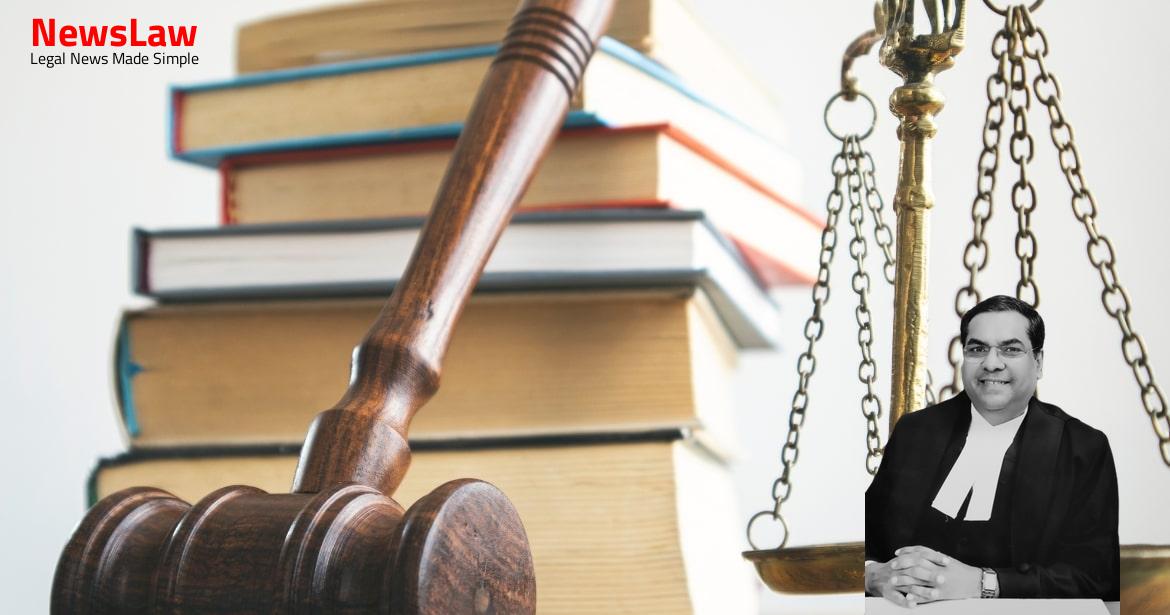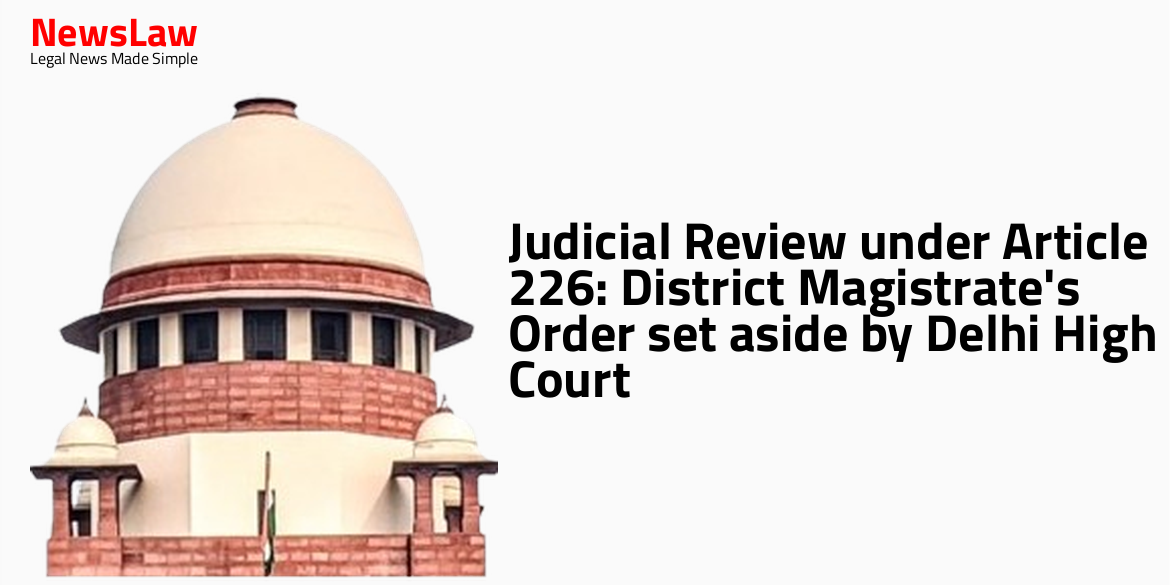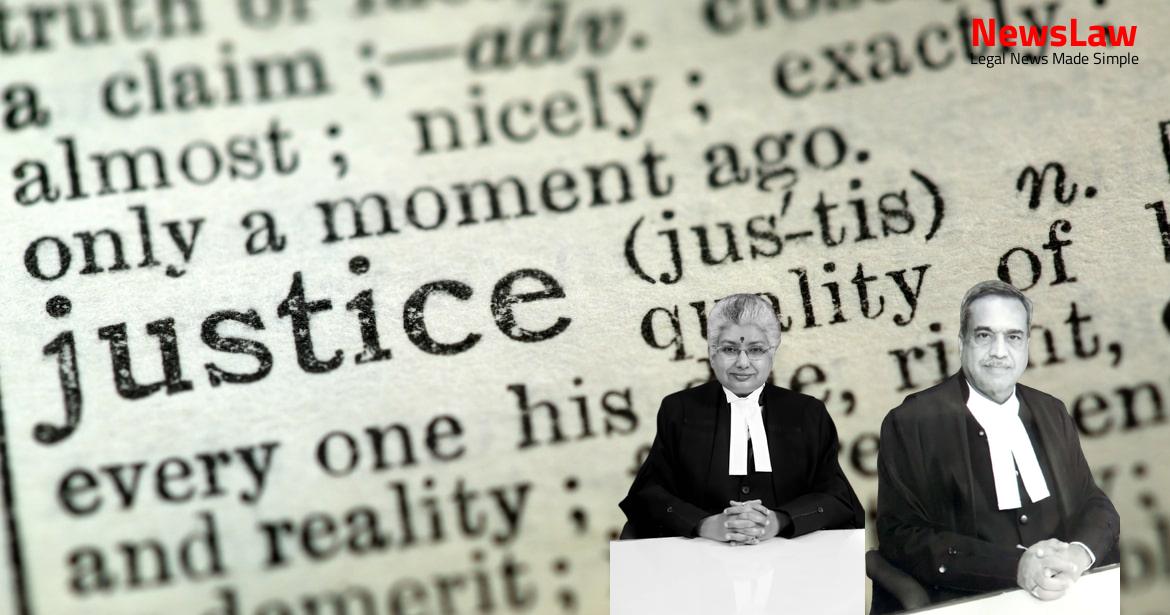The court’s analysis in this case focused on interpreting a tax incentive provision aimed at encouraging earners of foreign exchange. The discussion revolved around the need for a strict initial assessment of service eligibility under the provision, followed by a liberal interpretation once eligibility is established based on factual records. The key consideration was whether the specialized and technical services rendered from India to foreign entities qualified for deduction under the provision. Stay tuned to delve deeper into the legal intricacies of the interpretation of tax incentive provisions.
Facts
- The question in these appeals is whether income received in foreign exchange for services provided to foreign enterprises qualifies for deduction under Section 80-O of the Income Tax Act, 1961.
- Appellants provided services to foreign buyers of frozen seafood, received service charges in foreign exchange, and claimed deduction under Section 80-O for relevant assessment years.
- Assessing Officers denied the claim stating services were rendered in India, not from India, thus not qualifying for deduction under clause (iii) of the Explanation to Section 80-O.
- Income Tax Appellate Tribunal, Cochin Bench, accepted the claim for deduction in one case citing that necessary information provided to foreign enterprises led to their decision-making, hence services were from India.
- Assessees, aggrieved by various orders, have filed these appeals.
- The High Court of Kerala allowed the appeals of revenue and set aside the orders of ITAT in relation to Section 80-O of the Act.
- Similar decisions were made by ITAT in the case of the present assessee for other assessment years and for another assessee, M/s Laxmi 2 Agencies.
- The revenue filed appeals against the ITAT orders in favor of the appellants and other assessees.
- The High Court concluded that the assessees were marine product procuring agents for foreign enterprises without expertise usable abroad, making their services ineligible under Section 80-O.
Also Read: Limitation Laws in Insolvency Proceedings
Arguments
- The appellant has argued that the High Court approached the case with a wrong angle, focusing too much on linguistic interpretation and ignoring the purpose of Section 80-O which is to incentivize earning foreign exchange.
- Reference was made to the decision in Abhiram Singh v. C.D. Commachen cautioning against overly relying on the dictionary for interpretation.
- The appellant also referred to the decision in Commissioner of Income Tax, Thiruvananthapuram v. Baby Marine Exports, Kollam to emphasize the need for a broad and liberal interpretation of incentive provisions like Section 80-O to achieve the object of earning foreign exchange.
- Drawing from Commissioner of Income Tax-IV, Tamil Nadu v. B. Suresh, where a similar liberal approach was taken for Section 80HHC of the Act, the appellant argues that Section 80-O should also be interpreted liberally to provide incentives for earning foreign exchange.
- The respondents have not provided a specific reply to the submissions based on the decisions of the Court in J.B. Boda & Co. case.
- The activity of a reinsurance broker was considered to be covered for the benefit of Section 80-O in previous cases.
- A liberal and purposive approach adopted in J.B. Boda & Co. for interpreting Section 80-O is crucial for the present case.
- The appellant submitted various services it provided to foreign enterprises, justifying its claim for deduction under Section 80-O of the Act.
- The principles of interpretation in the Dilip Kumar & Co. case are deemed inapplicable as it deals with an exemption notification, not an incentive provision like Section 80-O.
- The decision of the Kerala High Court in Thomas Kurian is considered different from the present case, and therefore not sufficient for comparison.
- The nature of services rendered by the appellant is argued to be different from that in other cases cited by the respondents.
- The appellant’s claim for deduction under Section 80-O is supported by the technical/professional services rendered from India, specifically for assisting foreign enterprises.
- The respondent’s references to certain circulars and decisions are argued to be irrelevant and misplaced in the context of the present case.
Also Read: Interpretation of Sales Tax Reimbursement in Government Contracts
Analysis
- In the case of J.B. Boda & Co., the appellant was engaged as a reinsurance broker in brokerage business. The revenue’s appeal before ITAT was considered, and the order was overruled.
- The ambiguity or doubt in interpreting exemption clause should not benefit the assessee, but must be in favor of the Revenue. Once eligibility for deduction is established, it can be construed liberally.
- The High Court observed that technical and professional services rendered from India to a foreign Government or enterprise outside India entitle the person rendering the services to claim deduction under Section 80-O. The intent is to encourage earners of foreign exchange.
- The High Court pointed out the duty of the revenue and the right of the assessee to ensure that consideration paid under the contract is apportioned for deduction under Section 80-O.
- The services rendered must be of specialized and technical nature to qualify under Section 80-O. Information provided by the assessee must be utilized by the foreign parties for decision-making outside India.
- The High Court distinguished cases where activities were conducted only in India and not from India, emphasizing the need for specialized services rendered from India to qualify for the benefit of Section 80-O.
- The assessment of whether a service falls within the provision of Section 80-O must be construed strictly, but once eligibility is established, the provision can be interpreted liberally based on factual records.
- Services rendered or agreed to be rendered outside India include services rendered from India but not in India.
- The definition of ‘services rendered or agreed to be rendered outside India’ clarifies that services rendered from India are included in this category.
- Services rendered in India are specifically excluded from the definition provided in this section.
- The judgment discussed the importance of a tax exemption provision/notification and the need for clear interpretation rules when ambiguity arises.
- The specific question referred to the Constitution Bench was about the interpretative rule that should be applied in cases where there is uncertainty regarding the applicability of a tax exemption provision/notification.
Also Read: Tax Deduction at Source and Section 40(a)(ia) Disallowance
Case Title: RAMNATH AND CO. Vs. THE COMMISSIONER OF INCOME TAX (2020 INSC 415)
Case Number: C.A. No.-002506-002509 / 2020



